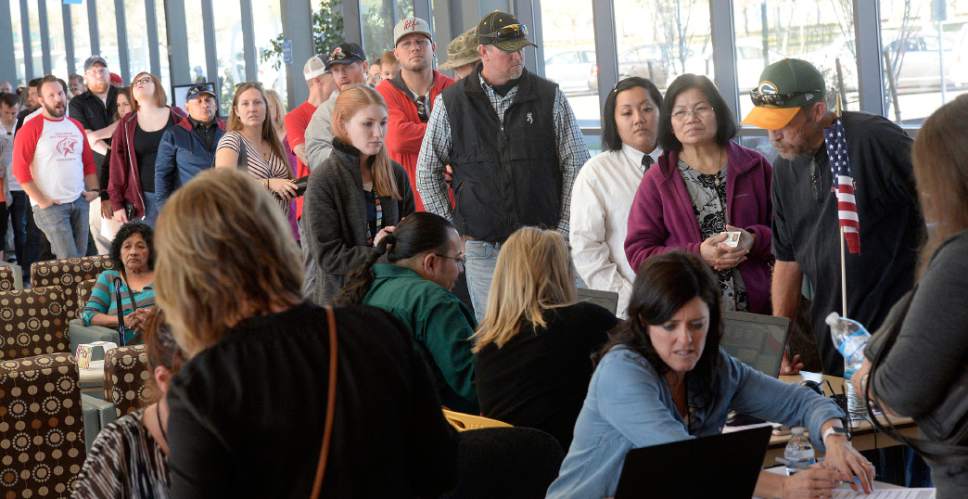This is an archived article that was published on sltrib.com in 2016, and information in the article may be outdated. It is provided only for personal research purposes and may not be reprinted.
The best reason for mail-in balloting is that it gives voters a chance to stop and consider the choices that are before them rather than being forced to make snap decisions on insufficient information.
The same is true of the system itself, which is why the Utah Legislature should not make a knee-jerk decision to cancel the system after only one try.
There is no question that the first run at an all-mail election during a high-turnout presidential year did not go as planned, particularly in Salt Lake County. Hopes that hundreds of thousands of Salt Lake County voters would receive their ballots in the mail, open and peruse them carefully, take the time to consider their options and look up information on any candidates or questions they were not already familiar with, then return them by mail at least one day before traditional Election Day, were simply not realized.
The number of voters who rejected, didn't understand and simply weren't used to the return-mail option flat overwhelmed the few Election Day polling stations that had been set up. Waits of more than three hours at the polling places that did exist were not uncommon. And no one can know how many people didn't vote at all after deciding they couldn't afford to spend that much time in line.
Still, overall voter turnout in Salt Lake County was almost 84 percent, which is something to be hopeful about in a state that has seen its participation rate decline in recent years.
At least one member of the Legislature, West Valley City Republican Rep. Craig Hall, has seen enough. He says he will introduce a bill in the session that begins next month to do away with the all-mail ballot in Salt Lake County and the 20 other counties that used that method last month.
His concern is valid. But his solution is premature.
The fact that good and civic-minded people need more time to adjust to such a big change in the way elections are held does not mean that mail-in ballots are not a good idea.
Voting by mail is a good way of encouraging more people to participate, and elections in which more people participate are good for democracy. They require candidates to address the needs of as many people as possible rather than the wants of a narrow, activist sliver of the electorate. And the fact that people have more time to consider the candidates and issues helps assuage concerns that a larger pool of voters means a lower average civic IQ.
A transitional period should include, at least over the next couple of election cycles, more polling stations and more voter education. And, perhaps most important, including those popular little "I Voted" stickers with each ballot.
We'll get used to it yet.



